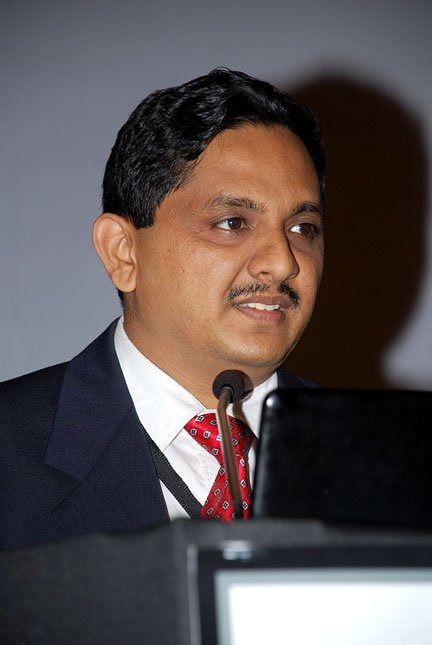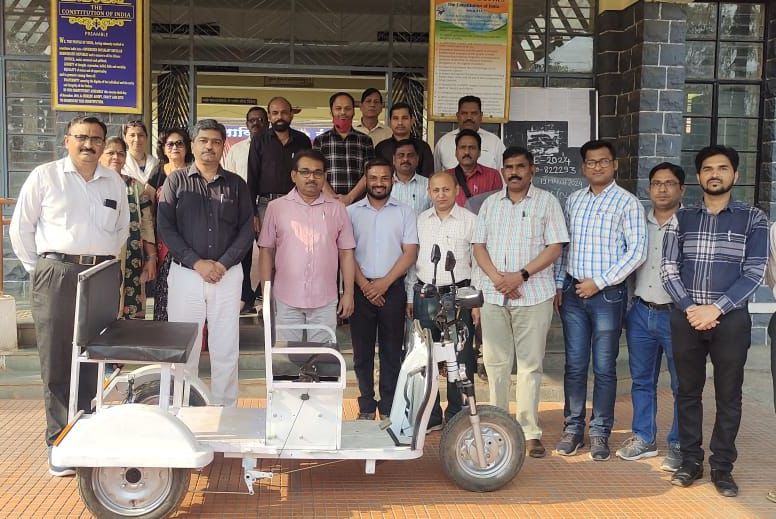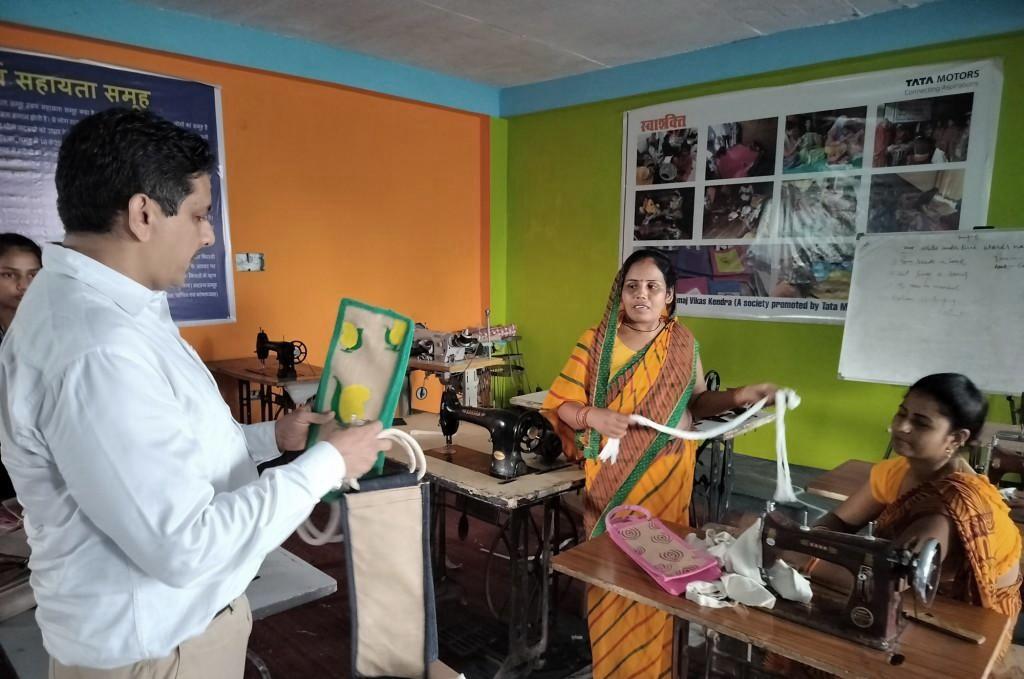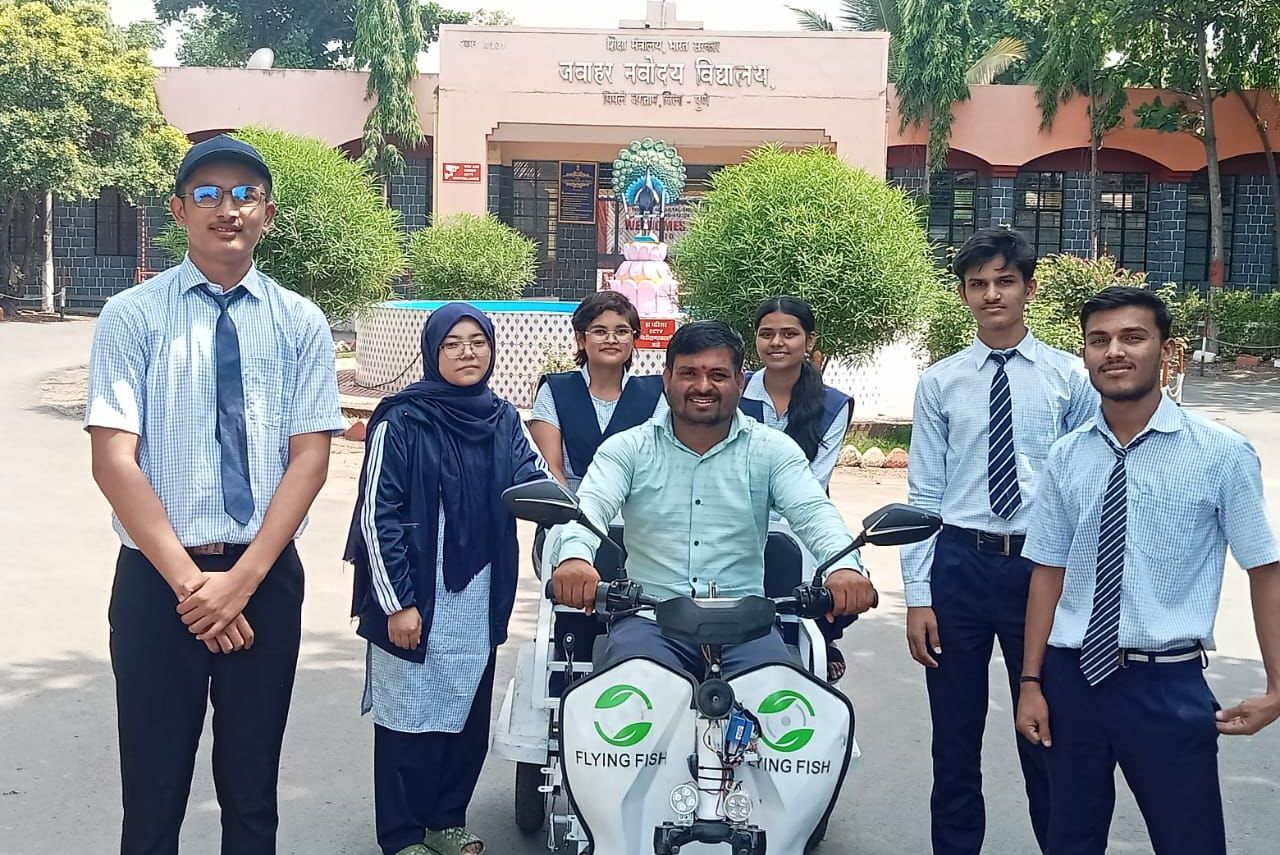 India's future could hinge on how well it harnesses the potential of its young population, with an average age of just 28. With this unique demographic advantage, the country faces a crucial moment to drive economic growth, innovation, and social progress. In this thought-provoking article, Mr. Vinod Kulkarni, CSR Head at Tata Motors, argues that while the government's initiatives—such as the National Education Policy (NEP) 2020, Skill India Mission, and Startup India—are commendable steps forward, the real challenge lies in ensuring equitable access to skill development, particularly for marginalized groups like rural youth and women.
India's future could hinge on how well it harnesses the potential of its young population, with an average age of just 28. With this unique demographic advantage, the country faces a crucial moment to drive economic growth, innovation, and social progress. In this thought-provoking article, Mr. Vinod Kulkarni, CSR Head at Tata Motors, argues that while the government's initiatives—such as the National Education Policy (NEP) 2020, Skill India Mission, and Startup India—are commendable steps forward, the real challenge lies in ensuring equitable access to skill development, particularly for marginalized groups like rural youth and women.
Drawing on his extensive experience in corporate social responsibility, Mr. Kulkarni highlights the importance of a comprehensive strategy that combines policy reform, strategic investments, and strong public-private partnerships. Tata Motors' own initiatives, such as the Automotive Skill Labs in partnership with Navodaya Vidyalaya Samiti, showcase how leveraging existing resources and expertise can promote inclusive growth. He also emphasizes the transformative role businesses can play by embedding skill development into their core agendas, thereby aligning community impact with business growth.
Known for his innovative and collaborative approach, Mr. Kulkarni has led Tata Motors to be recognized for its affirmative action and community engagement programs. A Fulbright Fellow in Global Leadership from Carnegie Mellon University, he believes that the social sector thrives on collaboration rather than competition. His vision calls for a united effort among government, industry, and civil society to develop a skilled, empowered workforce that can help realize the vision of a ‘Viksit Bharat’—a developed India. To explore these ideas further and understand how we can bridge the skills gap for a more inclusive future, read on as Mr. Kulkarni delves into the critical steps needed to level the playing field for all.
Levelling the Playing Field: Ensuring Equitable Access to Skill Opportunities
India's youthful demographic, with an average age of 28 years, places the country at a critical turning point. This presents a significant opportunityto drive innovation, productivity, and economic growth. Recognising this potential, the government has taken path breaking steps to harness this demographic dividend through innovative initiatives that are empowering young people with the knowledge and skills needed to contribute meaningfully to the economy and drive inclusive growth.
Pioneering programs like the National Education Policy (NEP) 2020, with its emphasis on vocational development,the Skill India Mission,and Startup India, are clear calls to action. They demonstrate a strong policy commitment to developing human capital. The Budget 2024-25 further emphasises employment generation and skill development. Per data, 46.2% of our country’s youth are considered highly employable. Targeted interventionslike these play a key role in aligning the emerging workforce with evolving industry demands, fosteringa culture of innovation, and accelerating the path to a 'Viksit Bharat'.
Investing in the skilling of our youth is a strategic opportunity to accelerate economic growth and enhance global competitiveness. Therefore, concerted efforts are needed to ensure equitable access to skill development opportunities. A multi-faceted approach combining policy reforms and strategic investments is critical. Public-Private Partnerships (PPPs), leveraging the expertise of the private sector alongside the policy framework and infrastructure investments, offer a powerful solution. By working in partnership, the government and the private sector can create a more robust and inclusive skill development ecosystem that equips our youth with the skills they need to thrive in the 21st-century economy.
Barriers to Equitable Access
Addressing the skills gap in India demands a nuanced approach, given the systemic challenges unique to the county. Limited infrastructure, suboptimal training quality, and financial constraintsact as barriers, especially for marginalised communities. Women and rural youth are particularly vulnerable, with 80% of rural Indian youth not having pursued vocational or skill training.
Empowering young people with the knowledge, skills, and confidence to explore diverse career paths requires a collaborative ecosystem that involves policymakers, corporates, and educational institutions. Policymakers can play a key role by creating an enabling environment through strategic investments, reforms, and fostering public-private partnerships.
Government initiatives like the Pradhan Mantri Kaushal Vikas Yojana and Pradhan Mantri Mudra Yojana have expanded access to skills training and entrepreneurship. However, to effectively bridge the urban rural disparities, a focused approach to empower rural youth is needed. This can be achieved by leveraging existing programs and forging new collaborations to createa more equitable and inclusive skill development landscape.
Business as a Force for Good
 Businesses, as key drivers of economic growth, can play a transformative role. By integrating skill development into their core CSR agenda, they can foster talent creation and fuel business growth. This involves going beyond one-time training to nurture a culture of learning and innovation within communities. The pioneering Automotive Skill Labs is one such approach.
Businesses, as key drivers of economic growth, can play a transformative role. By integrating skill development into their core CSR agenda, they can foster talent creation and fuel business growth. This involves going beyond one-time training to nurture a culture of learning and innovation within communities. The pioneering Automotive Skill Labs is one such approach.
Dedicated to nurturing future-ready automotive talent, Tata Motors, in collaboration with Navodaya Vidyalaya Samiti (NVS), has established dedicated ‘Automotive Skill Labs’ at Jawahar Navodaya Vidyalayas (JNVs). Twenty-five fully equipped labs, spread across multiple states, are reaching around 4,000 students annually, with an impressive 30% female participation.Aligning with NEP 2020, theAutomotive Skill Labs blend theory with hands-on practical training. Students gain exposure to cutting edge, industry best practices through plant visits, interactions with experts, and mentorship opportunities. Initiatives like these that leverage existing educational infrastructure and industry expertise, canhelp expand access to quality skill development, particularly for marginalised communities.
The Power of Technology
The convergence of technology, education, and skills is reshaping the modern workforce. As technology rapidly evolves, so too must our skill development strategies. Artificial Intelligence, which enables personalised learning and optimised training modules, offers a promising avenue. By leveraging technology, we can create a future-ready workforce capable of navigating the complexities of the digital age and drive innovation.
 Building Stronger Communities
Building Stronger Communities
For lasting impact, community engagement is essential. Tata Motors Samaj Vikas Kendra (SVK) is an example of corporate social responsibility in action. The program is helping women in India’s rural heartland to become economically independent. By empowering women through skills training in Chikankari, jute bag production, and artificial jewelry, SVK is generating livelihoods and fostering financial independence. The project has had an enduring impact, leading to the active engagement of over 150 women in forming self-help groups and engaging in credit and thrift activities, mobilising a remarkable Rs. 25 lakhs. Its success is a thriving example of the positive impact of a robust private sector-government partnership in addressing complex socio-economic challenges.
The Path Forward
India is on the threshold of an extraordinary opportunity, filled with immense promise. Our vibrant youth hold within them a world of untapped potential that’s waiting to be harnessed. By joining hands and working together to bridge the skills gap, we can unleash this potential.
Creating a collaborative environment that brings together the government, industry, and civil society is crucial in nurturing a skilled workforce that will drive India's economic transformation and bring to life the vision of a Viksit Bharat. We must look at this as a strategic investment in our nation's future.





 India's future could hinge on how well it harnesses the potential of its young population, with an average age of just 28. With this unique demographic advantage, the country faces a crucial moment to drive economic growth, innovation, and social progress. In this thought-provoking article, Mr. Vinod Kulkarni, CSR Head at Tata Motors, argues that while the government's initiatives—such as the National Education Policy (NEP) 2020, Skill India Mission, and Startup India—are commendable steps forward, the real challenge lies in ensuring equitable access to skill development, particularly for marginalized groups like rural youth and women.
India's future could hinge on how well it harnesses the potential of its young population, with an average age of just 28. With this unique demographic advantage, the country faces a crucial moment to drive economic growth, innovation, and social progress. In this thought-provoking article, Mr. Vinod Kulkarni, CSR Head at Tata Motors, argues that while the government's initiatives—such as the National Education Policy (NEP) 2020, Skill India Mission, and Startup India—are commendable steps forward, the real challenge lies in ensuring equitable access to skill development, particularly for marginalized groups like rural youth and women. Businesses, as key drivers of economic growth, can play a transformative role. By integrating skill development into their core CSR agenda, they can foster talent creation and fuel business growth. This involves going beyond one-time training to nurture a culture of learning and innovation within communities. The pioneering Automotive Skill Labs is one such approach.
Businesses, as key drivers of economic growth, can play a transformative role. By integrating skill development into their core CSR agenda, they can foster talent creation and fuel business growth. This involves going beyond one-time training to nurture a culture of learning and innovation within communities. The pioneering Automotive Skill Labs is one such approach. Building Stronger Communities
Building Stronger Communities 


.jpg)










